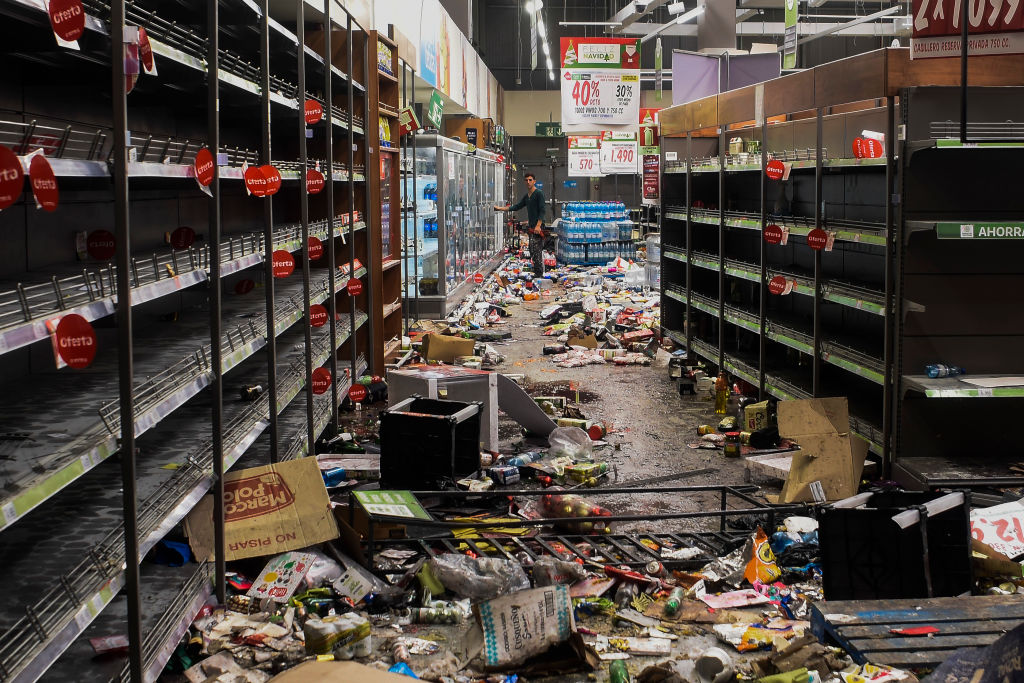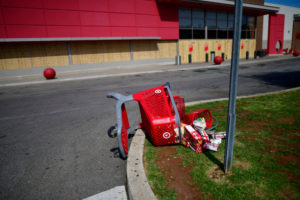
“Food desert” is a term that has been around for years. Most of the time when people are using that term they are talking about Black and brown communities. Food deserts are geographic areas where access to affordable, healthy food options (e.g., fresh fruits and veggies) is limited or nonexistent because grocery stores are too far away.
About 23.5 million people live in food deserts. Nearly half of them are also low-income. Residents living in food deserts also have a hard time finding foods that are culturally relevant and that meet their dietary restrictions. With limited options, many people living in food deserts get meals from fast-food restaurants.
Fast food eating on a consistent basis does nothing for our communities but contribute to the high rates of cholesterol, blood pressure, obesity, heart disease, and more. It’s a vicious cycle.
And now, with looters taking advantage of protests in honor of George Floyd, they have left Black communities all over the U.S. in more of a bad situation as it relates to access to healthy food.
A supermarket chain said recent looting in Philadelphia sparked by the death of George Floyd has forced it to shutter all seven of its locations there, meaning some customers “can’t get food anywhere.”
Fresh Grocer’s store is located in the Germantown neighborhood and was among the businesses that suspended operations over safety concerns.
“We can’t open our Fresh Grocer Supermarket. People are coming up crying because they can’t get food anywhere,” Fresh Grocer CEO Pat Burns told FOX News. “This was the No. 1 food desert in Philadelphia for years.”
In Chicago, there are a number of food deserts.
One resident is quoting saying “I have to go to Indiana, in order to get food now because my local grocery store is closed down.”
Pamela Davis of Chicago’s Auburn-Gresham neighborhood says “Now, I’m on the hunt for places to fill my medication. My local CVS is closed and I don’t know when they’ll be back open. This just makes no sense.”

Local Market Foods is the main source of fresh food for people in Chicago’s South Shore neighborhood, and during all of the chaos, the community came together to protect it.
When riots and looting started, the store had to close because employees and even security were concerned about their safety. But when they closed, the community no longer had a nearby source for fresh food. That’s why people in the neighborhood, along with community organizers, plan to show their support Thursday as the store reopens.
“What we’re doing is bringing community members to say we are not going to allow our stores to be closed or taken over by vandals, sending a clear signal that the support of the community is behind local market,” Neighbor Network Alliance Val Free said.
This grocery store was also behind the Feeding South Shore initiative. Providing thousands of meals to families in the neighborhood.
So what happens now?
Will grocery store chains come back and rebuild in those neighborhoods?
Will prices go up because of insurance claims that had to be filed?
The short answer is, we don’t know. What we do know is that our people need fresh, healthy food so where can we get that from?
Some of the most widely available grocery delivery services include Instacart, Walmart, Shipt, and Peapod so check and see if…








